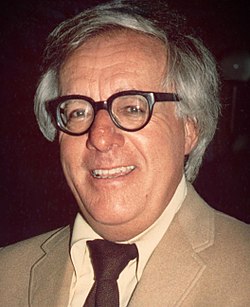Ray Bradbury Quote
The old man would go on with this talking and this talking, drop by drop, stone by stone, flake by flake. His mind would well over at last and he would not be Montag any more, this the old man told him, assured him, promised him. He would be Montag-plus-Faber, fire plus water, and then, one day, after everything had mixed and simmered and worked away in silence, there would be neither fire nor water, but wine. Out of two separate and opposite things, a third. And one day he would look back upon the fool and know the fool.
Ray Bradbury
The old man would go on with this talking and this talking, drop by drop, stone by stone, flake by flake. His mind would well over at last and he would not be Montag any more, this the old man told him, assured him, promised him. He would be Montag-plus-Faber, fire plus water, and then, one day, after everything had mixed and simmered and worked away in silence, there would be neither fire nor water, but wine. Out of two separate and opposite things, a third. And one day he would look back upon the fool and know the fool.
Related Quotes
About Ray Bradbury
Ray Douglas Bradbury (US: BRAD-berr-ee; August 22, 1920 – June 5, 2012) was an American author and screenwriter. One of the most celebrated 20th-century American writers, he worked in a variety of genres, including fantasy, science fiction, horror, mystery, and realistic fiction.
Bradbury is best known for his novel Fahrenheit 451 (1953) and his short-story collections The Martian Chronicles (1950), The Illustrated Man (1951), and The October Country (1955). Other notable works include the coming of age novel Dandelion Wine (1957), the dark fantasy Something Wicked This Way Comes (1962) and the fictionalized memoir Green Shadows, White Whale (1992). He also wrote and consulted on screenplays and television scripts, including Moby Dick and It Came from Outer Space. Many of his works were adapted into television and film productions as well as comic books. Bradbury also wrote poetry which has been published in several collections, such as They Have Not Seen the Stars (2001).
The New York Times called Bradbury "An author whose fanciful imagination, poetic prose, and mature understanding of human character have won him an international reputation" and "the writer most responsible for bringing modern science fiction into the literary mainstream".
Bradbury is best known for his novel Fahrenheit 451 (1953) and his short-story collections The Martian Chronicles (1950), The Illustrated Man (1951), and The October Country (1955). Other notable works include the coming of age novel Dandelion Wine (1957), the dark fantasy Something Wicked This Way Comes (1962) and the fictionalized memoir Green Shadows, White Whale (1992). He also wrote and consulted on screenplays and television scripts, including Moby Dick and It Came from Outer Space. Many of his works were adapted into television and film productions as well as comic books. Bradbury also wrote poetry which has been published in several collections, such as They Have Not Seen the Stars (2001).
The New York Times called Bradbury "An author whose fanciful imagination, poetic prose, and mature understanding of human character have won him an international reputation" and "the writer most responsible for bringing modern science fiction into the literary mainstream".
